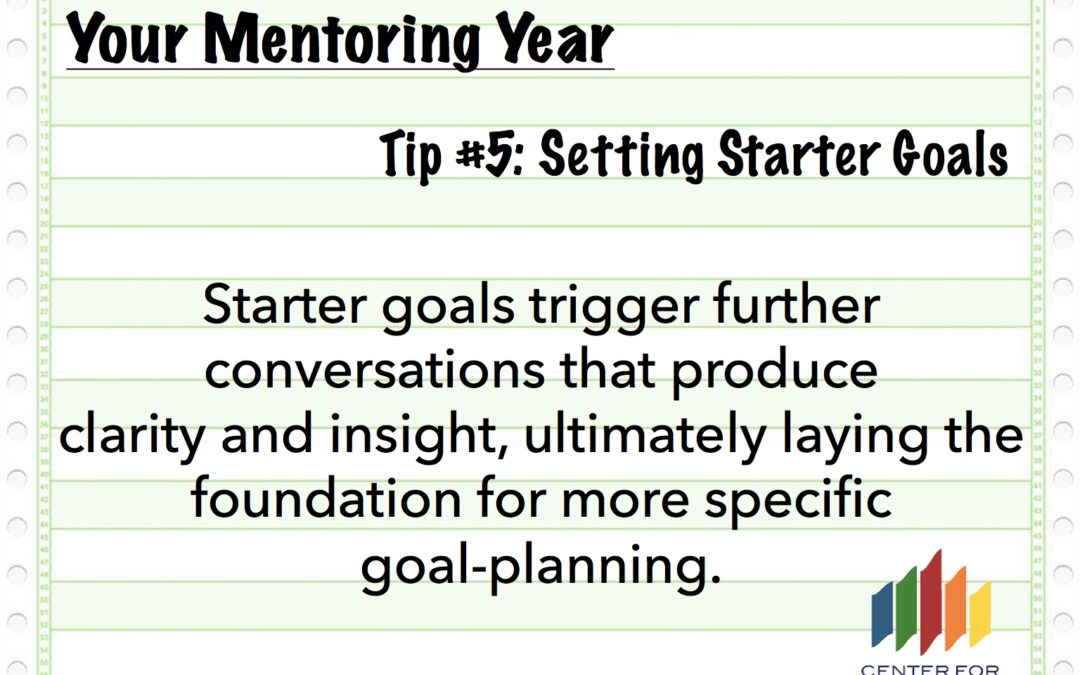The goal-setting conversation is an iterative process that usually begins with “starter goals.”
Starter goals are broad, general goals a mentee first presents to their mentor. Typical starter goals may include managing office politics, working on work/life balance, advancing career development, managing up, moving beyond the glass ceiling, team building, etc.
For example, let’s say your mentee wants to work on managing office politics. While a laudable and desirable goal, it’s too global, lacking specificity and measurability, making it the perfect starter goal.
Starter goals trigger further conversations that produce clarity and insight, ultimately leading to the creation of “SMART goals.” We’ll talk more about SMART goals next month, so stay tuned!
Here are a number of ways to help your mentee develop concrete, concise and clear starter goals.
- Expect goal-setting conversations to take time and work.
- Don’t confuse symptoms with solutions. Even if your mentee thinks he or she has identified a mentoring learning goal, they may be working on a symptom (e.g., communication), not the underlying challenge or problem.
- Ask “why” questions to promote reflection, increased self-awareness and focus. For example, “Why is this goal important to your development?” If the goal isn’t important enough, your mentee will have little energy and enthusiasm for completing it.
- Check out your assumptions by asking clarifying questions. For example, “What do you mean when you say you want to get ahead?” or, “I’m a little confused. Can you give me an example of what you mean by that?”



